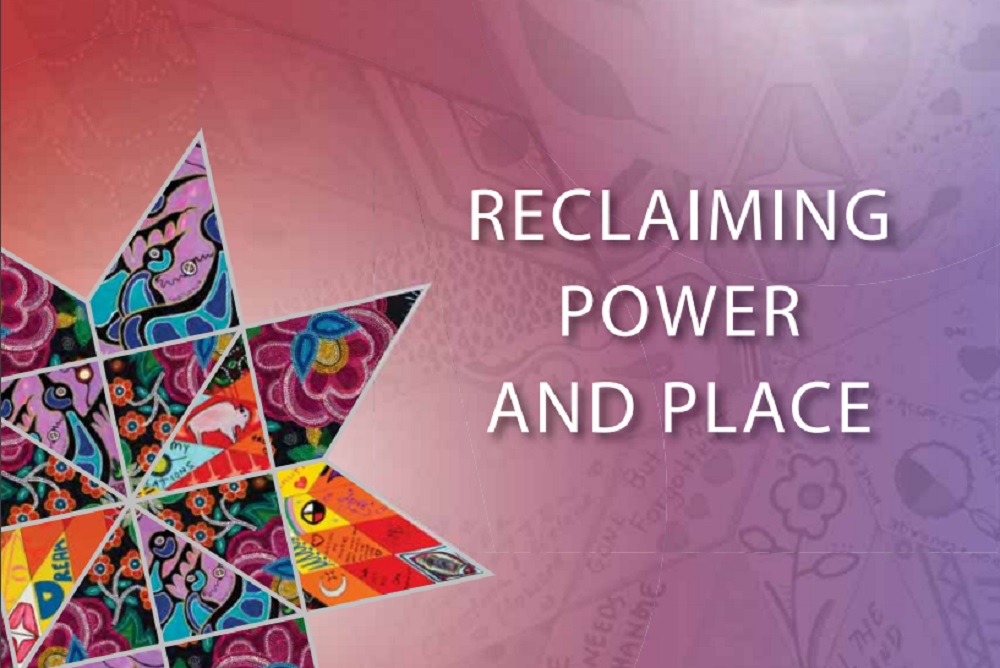Download the Final Report on Missing and Murdered Indigenous Women and Girls
February 7, 2020

Reclaiming Power and Place: The Final Report of the National Inquiry into Missing and Murdered Indigenous Women and Girls is now available for download from the Campus Library’s website.
Based on the truths shared by more than 2,380 family members, survivors of violence, experts and Knowledge Keepers, the two-volume report reveals that persistent and deliberate human and Indigenous rights violations and abuses are the root cause of Canada’s staggering rates of violence against Indigenous women, girls, and Two-Spirit, lesbian, gay, bisexual, transgender, queer, questioning, intersex and asexual (2SLGBTQQIA) people.
According to Statistics Canada (2016):
- While Indigenous women make up four per cent of all women in Canada, they account for 24 per cent of female murder victims.
- Between 2001 and 2015, homicide rates for Indigenous women were nearly six times higher than for non-Indigenous women.
- Indigenous women experience violent crime nearly three times more often than the national average.
The report calls for transformative legal and social changes to resolve the crisis that has devastated Indigenous communities across the country. It delivers 231 individual Calls for Justice directed at governments, institutions, social service providers, industries and all Canadians.
Want to learn more? Read the report and participate in Ontario Tech University’s and Durham College’s REDress Campus Campaign events Monday, February 10 through Friday, February 14.